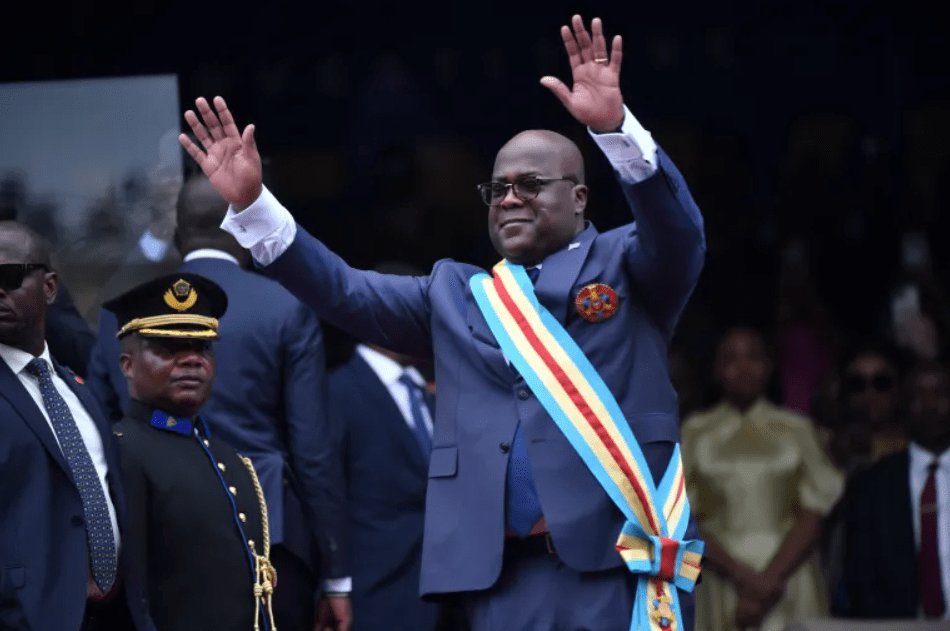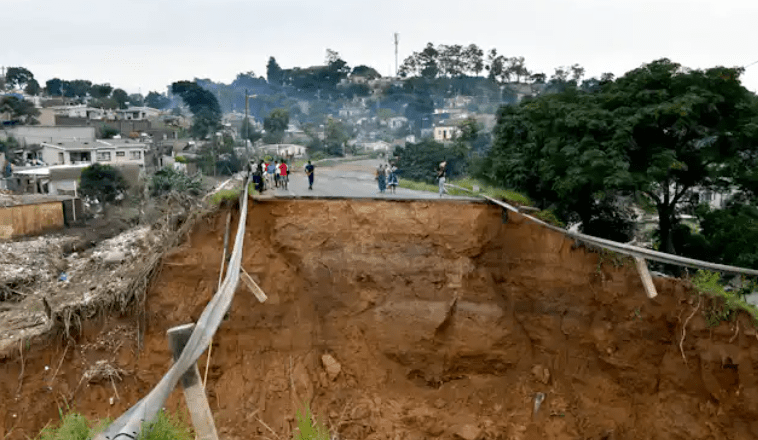President Felix Tshisekedi of the Democratic Republic of the Congo has been inaugurated for a second five-year term after contentious elections in December.
Speaking during the ceremony in the capital on Saturday, Tshisekedi, 60, expressed his commitment to a more united, stronger, and prosperous Congo.
“I am taking back the baton of command that you entrusted to me. We want a more united, stronger and prosperous Congo,” he said according to Al Jazeera.
Acknowledging public expectations regarding issues like unemployment, youth, women’s rights, and national cohesion, he vowed to address these challenges.

Amid simmering tensions in the country’s eastern provinces, the inauguration took place at Kinshasa’s 80,000-capacity Martyrs sports stadium.
The stadium witnessed a lively atmosphere with singing and dancing as dignitaries from African states and traditional chiefs gathered to witness the event.
Tshisekedi, nicknamed “Fatshi,” first assumed the presidency in January 2019, controversially defeating Joseph Kabila.
While his first term fell short of fulfilling promises to improve living conditions and end years of bloodshed, he campaigned for a second term, highlighting achievements such as free primary medication.
The president secured a landslide victory in the December 20 elections, winning over 70 percent of the vote with a turnout of more than 40 percent, involving 18 million voters.
However, opposition candidates, including Moise Katumbi and Martin Fayulu, rejected the results, citing logistical problems during the election, such as late or non-opening polling stations and issues with voter cards.
Katumbi and Fayulu called for the cancellation of election results and urged supporters to express their discontent. Reports of burning tires in Goma and attempted barricades in Beni, both in the conflict-torn eastern provinces, surfaced on the day of the inauguration.
The electoral commission, CENI, acknowledged cases of fraud, vandalism, and intimidation, as well as the use of illegal voting machines.
With a history of disputed elections turning violent, the DRC faces challenges in building trust in its institutions.
It comes as the nation continues to confront an unprecedented humanitarian crisis, with a staggering 6.9 million people displaced.
This crisis, largely overlooked by mainstream media, came to light in November through the International Organization for Migration (IOM), attributing the surge in displaced populations to long-standing conflicts.

